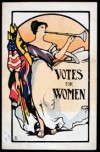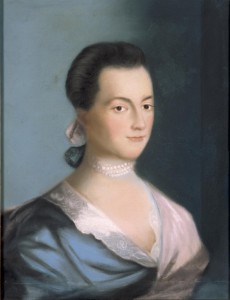 August 26th is Women’s Equality Day. It will mark the 94th anniversary of the final ratification of the 19th Amendment guaranteeing women in the United States the right to vote. Lately anti-woman political rhetoric, the Hobby Lobby Supreme Court decision and various state and national legislative proposals that would turn back the clock on women’s rights have left me pretty glum.
August 26th is Women’s Equality Day. It will mark the 94th anniversary of the final ratification of the 19th Amendment guaranteeing women in the United States the right to vote. Lately anti-woman political rhetoric, the Hobby Lobby Supreme Court decision and various state and national legislative proposals that would turn back the clock on women’s rights have left me pretty glum.
Even the awarding of the Fields Medal, the most prestigious prize in mathematics, to a woman for the first time in the entire 78 years the Medal has been given has me grumbling. We should be well past ‘firsts’ of this kind. And what about the fact that the first woman to win the Medal, Maryam Mirzakhani, now a professor at Stanford University, received all her early encouragement and education in Iran before coming to Harvard for graduate work? Are we doing enough to encourage and inspire young women in this country to pursue mathematics? No. The data still show that women in the U.S. are far less likely than men to hold professorships in the field. Old dated stereotypes continue to pervade K-12 and even college level environments. As Field Medalist Sir Tim Groves noted “I am thrilled that this day has finally come…I hope that the existence of a female medalist…will put to bed many myths about women and mathematics, and encourage more young women to think of mathematical research as a possible career.” Yes, me, too. But it sure is a long time coming.
I’ve been so grumpy that a friend recently suggested I take a break and get a grip. “It’s not as bleak as you feel, Susan. Think back to when women couldn’t even vote.”
And of course, she’s right. Her remark reminded me of my father quoting the old adage, ‘don’t let the bastards get you down’ when attempting to cajole me out of an adolescent funk because girls weren’t allowed to try out for track. It would take more than decade before Title IX began to change sports opportunities for girls, but it did happen.
Women have made major steps toward equality since the passage of the 19th Amendment. But my gloom is not entirely misplaced. Progress is not inevitable; backsliding surrounds us. The depth of inequality confronting Black Americans highlighted by events in Ferguson, Missouri is but one example of how far our nation has to go before achieving equality for all. Women and girls from every socio-economic level and racial/ethnic background are part of the continuing struggle for full civil and human rights. We can’t forget this. But the anniversary of the 19th amendment is a good time to recall progress, even if we seem smack dab in the middle of a ‘two steps forward, one step back’ phase of the struggle.
Too many women and men, girls and boys have no knowledge of the days when women were denied credit cards; few realize that 2014 marks the fortieth anniversary of the Equal Credit Opportunity Act giving women the right to credit cards in our own names. Nor are most people aware of a time when dozens of states prevented women from serving on juries. The Civil Rights Act of 1957, while focused primarily on racial discrimination, guaranteed every woman the right to serve on federal juries, but it wasn’t until 1973 that all fifty states permitted women to serve on state juries.
Job listings ‘for men’ and ‘for women’ and the illegality of birth control are often considered the ‘the stuff of feminist urban legends’ as one twenty year old recently informed me. And the very real threats to women’s reproductive rights strike some as far-fetched. After all, the Supreme Court decriminalized abortion long ago, way back in 1973. Yet today’s reality is that this right is being increasingly curtailed by state actions. Even current attempts to limit access to the voting booth are less understood than they should be.
So let’s celebrate and educate. Let’s celebrate Maryam Mirzakhani and the many other women ‘firsts’ who provide young women important role models in a wide range of fields. But let’s also be sure we remember legislative victories, the struggles involved, the decades required. Sometimes grumbling is both appropriate and necessary, but celebrations are important, too. There’s a long road ahead.


